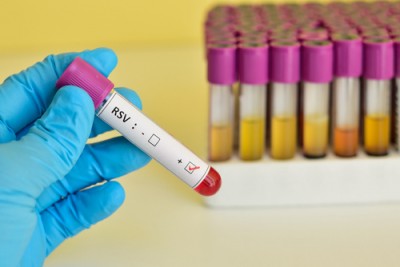RSV treatment market to expand at ‘unprecedented levels’
Posted: 13 January 2016 | | No comments yet
The RSV treatment market will rise from approximately $640 million in 2014 to over $2.3 billion by 2024, says research and consulting firm GlobalData…


The global Respiratory Syncytial Virus (RSV) treatment market will expand to unprecedented levels over the next decade, rising from approximately $640 million in 2014 to over $2.3 billion by 2024, says research and consulting firm GlobalData.


According to the company’s latest report, OpportunityAnalyzer: Respiratory Syncytial Virus (RSV) – Opportunity Analysis and Forecasts to 2024, this robust growth in the RSV treatment market, which will occur across the seven major markets of the US, France, Germany, Italy, Spain, the UK, and Japan, will be driven by multiple new product launches in the currently sparse RSV arena.
Christopher J. Pace, Ph.D., GlobalData’s Director of Infectious Diseases, states that Synagis (palivizumab) is the only licensed product indicated for the prevention of RSV in infants at a high risk of severe infection, and there are no prophylactic agents approved for adults.
Pace explains: “Despite Synagis being effective in many patients, its short half-life and prohibitively high cost limit its utility.
“However, the anticipated launches of novel prophylactic monoclonal antibodies (mAbs) led by MedImmune’s MEDI8897 and Regeneron’s REGN2222, have provided hope for more cost-effective alternatives to Synagis. GlobalData expects these pipeline agents will be important players in the RSV space across the seven major markets by 2024.”
Novavax’s RSV-F Vaccine predicted to stimulate rapid growth
In addition, the anticipated licensure of the first adult vaccine to offer protection against RSV, Novavax’s RSV-F Vaccine, will also stimulate rapid growth in the RSV treatment market in a previously untapped segment of the marketplace, with elderly patients, especially those living in nursing homes, driving the uptake of this vaccine.
Pace continues: “These new products come at a time when RSV presents a growing socioeconomic and public health burden. New game-changing agents will be enthusiastically welcomed, particularly as healthcare stakeholders are becoming increasingly open to novel interventions that may provide indirect cost-savings by shortening, or even outright preventing, hospital stays.
“Despite the RSV treatment market’s promising prospects, there will be formidable logistical and financial hurdles to overcome in order to successfully assimilate novel RSV vaccines into existing immunisation programme infrastructure. However, such barriers will not hinder exciting market growth to 2024.”








